02:15
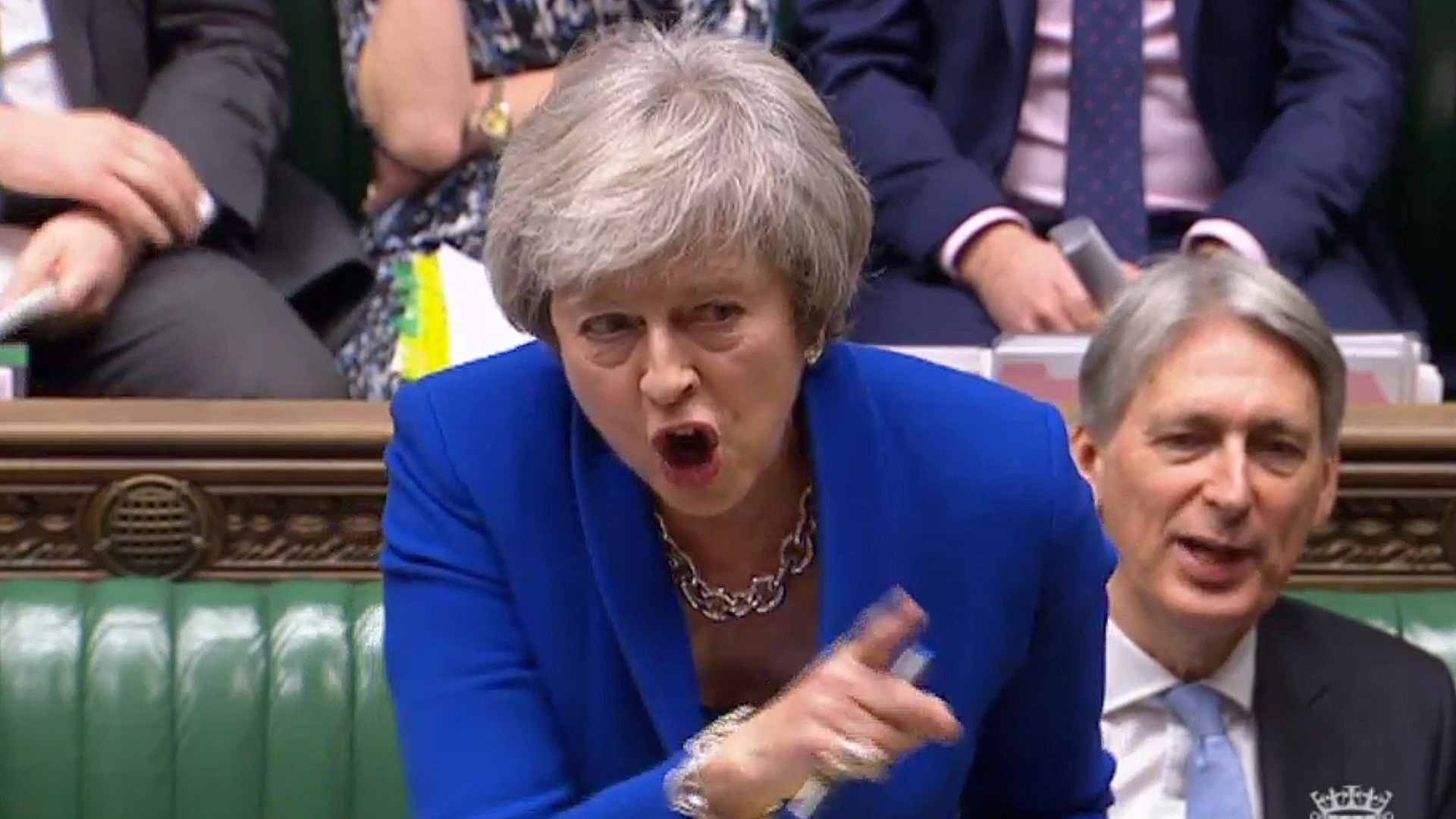
The British Prime Minister Theresa May is making the final push to rally support for her Brexit deal which is going to vote Tuesday. She repeated her weekend warnings to MPs poised to reject her EU divorce deal that failing to deliver Brexit would be "catastrophic" for British democracy.
Writing for the Sunday Express - a popular British tabloid - May warned lawmakers about the implications of rejecting her Brexit plan. She said, "doing so would be a catastrophic and unforgivable breach of trust in our democracy." She urged them to "forget the games and do what is right for our country."
With the clock ticking down to its March 29 exit from the European Union, and parliament deadlocked, Britain faces a hugely uncertain path that could lead to a disorderly exit or even remaining in the bloc.
On the eve of Tuesday's monumental vote in parliament on her withdrawal agreement – forged from 18 months of grueling negotiations with European leaders – May is set to address factory workers in Stoke, a Brexit-backing city in central England.
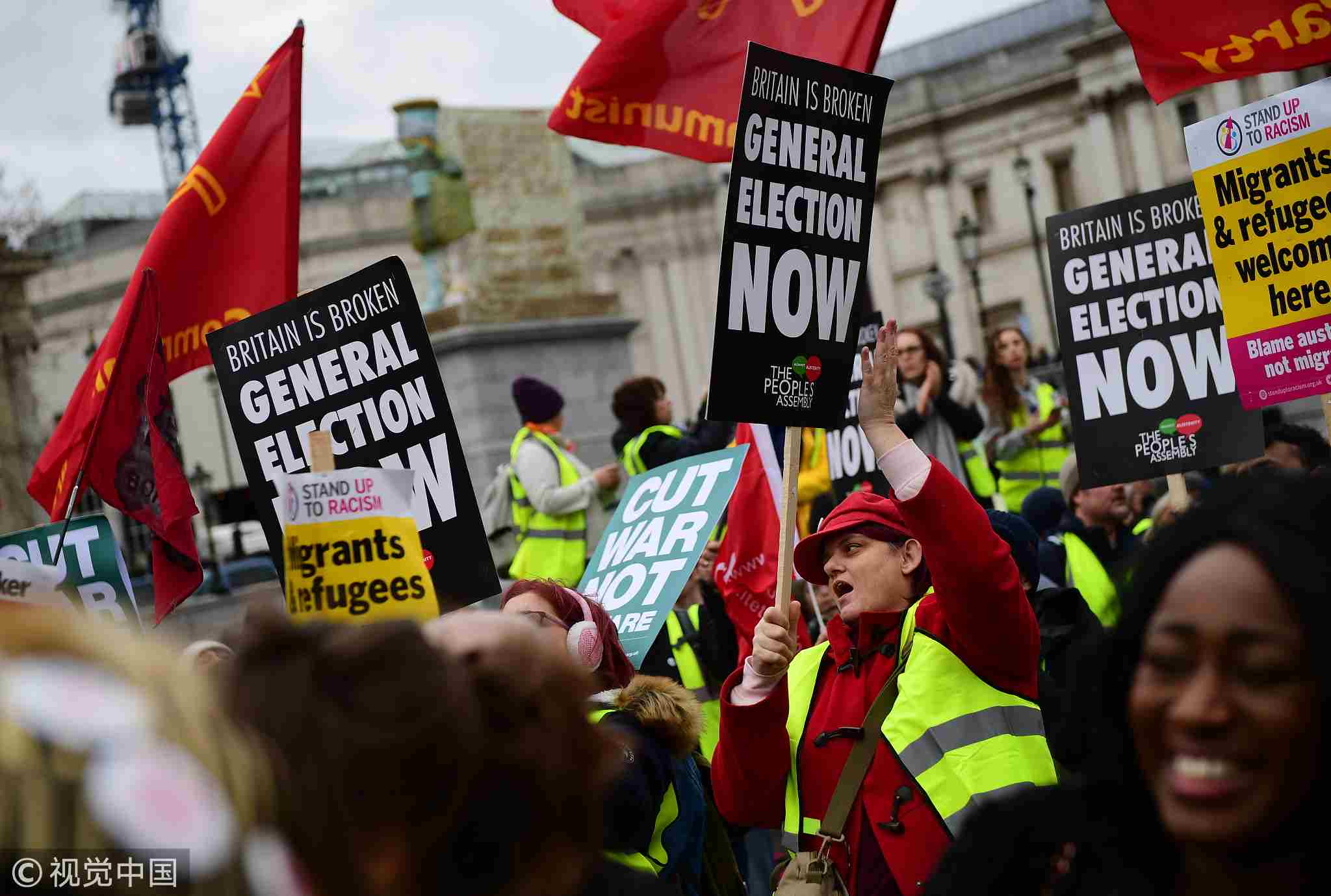
Demonstrators wearing yellow vests protest in Trafalgar Square in London, England, January 12, 2019. /VCG Photo
Demonstrators wearing yellow vests protest in Trafalgar Square in London, England, January 12, 2019. /VCG Photo
The embattled leader, who is widely expected to lose the House of Commons vote by a wide margin, is making a final bid for support by arguing: "We all have a duty to implement the result of the referendum.
"I ask MPs to consider the consequences of their actions on the faith of the British people in our democracy," May is expected to say, according to excerpts of her speech released by her office.
"What if we found ourselves in a situation where parliament tried to take the UK out of the EU in opposition to a remain vote?" she will ask.
"People's faith in the democratic process and their politicians would suffer catastrophic harm."
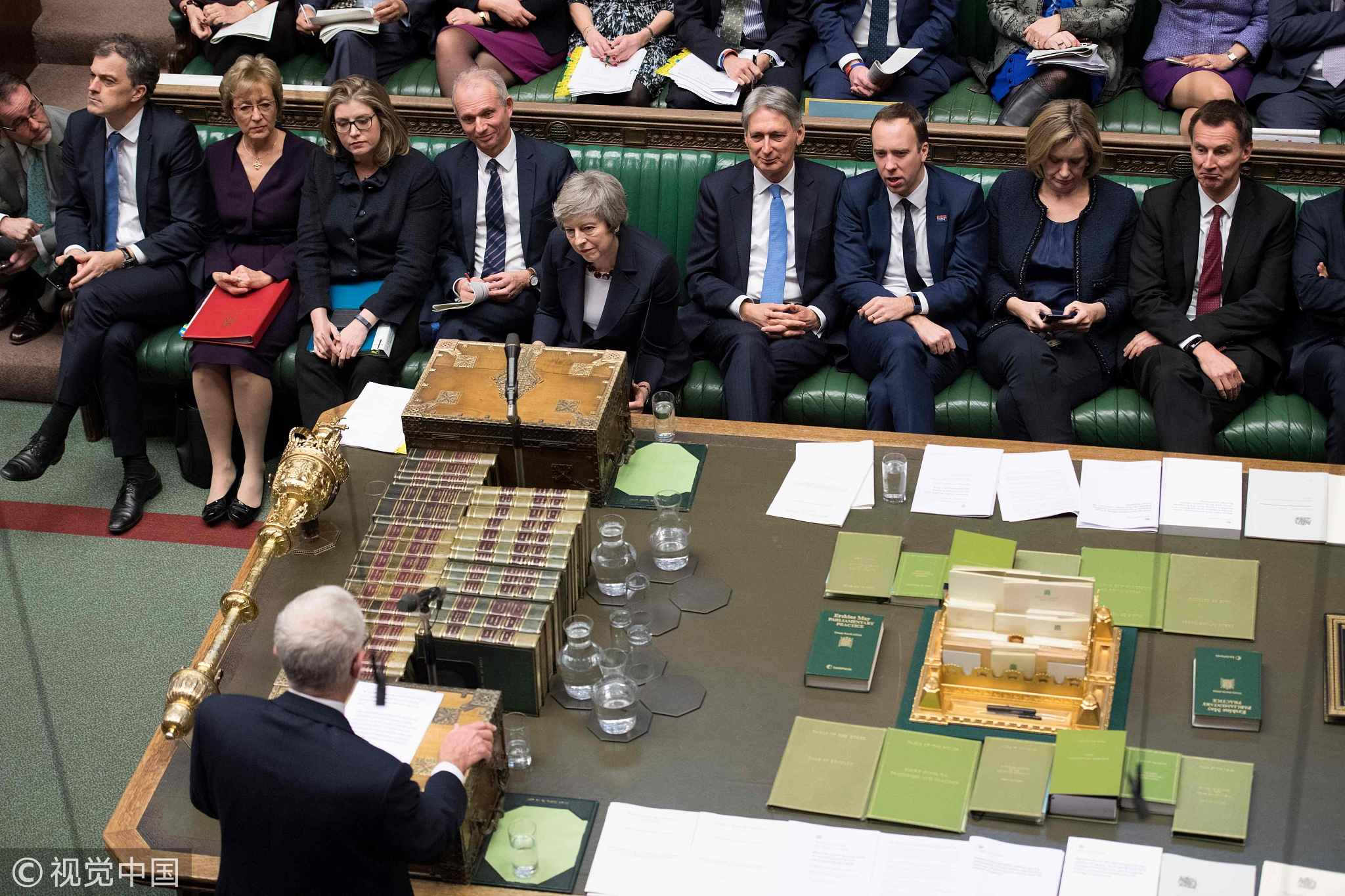
A handout photograph released by the UK Parliament shows Britain's Prime Minister Theresa May (C top) listening as Labour leader Jeremy Corbyn speaks during Prime Minister's Questions (PMQs) in the House of Commons in London, January 9, 2019. /VCG Photo
A handout photograph released by the UK Parliament shows Britain's Prime Minister Theresa May (C top) listening as Labour leader Jeremy Corbyn speaks during Prime Minister's Questions (PMQs) in the House of Commons in London, January 9, 2019. /VCG Photo
May has so far refused to retreat from her unpopular deal, which envisages close trading ties with the EU, but without any say on policy as Britain has now. The vexed Brexit issue represents Britain's biggest shift in foreign and trade policy in more than 40 years.
'No confidence in the government'
May's deal has come under fire from all sides – with opponents of the EU seeking a cleaner break and many pro-Europeans pressing for a second referendum. It is expected to suffer a big defeat when parliament votes on Tuesday.
Brexit Secretary Stephen Barclay told BBC TV that persuading enough lawmakers to support the deal would be “challenging” but that, even if it was rejected, he suspected parliament would ultimately support something “along the lines of this deal.”
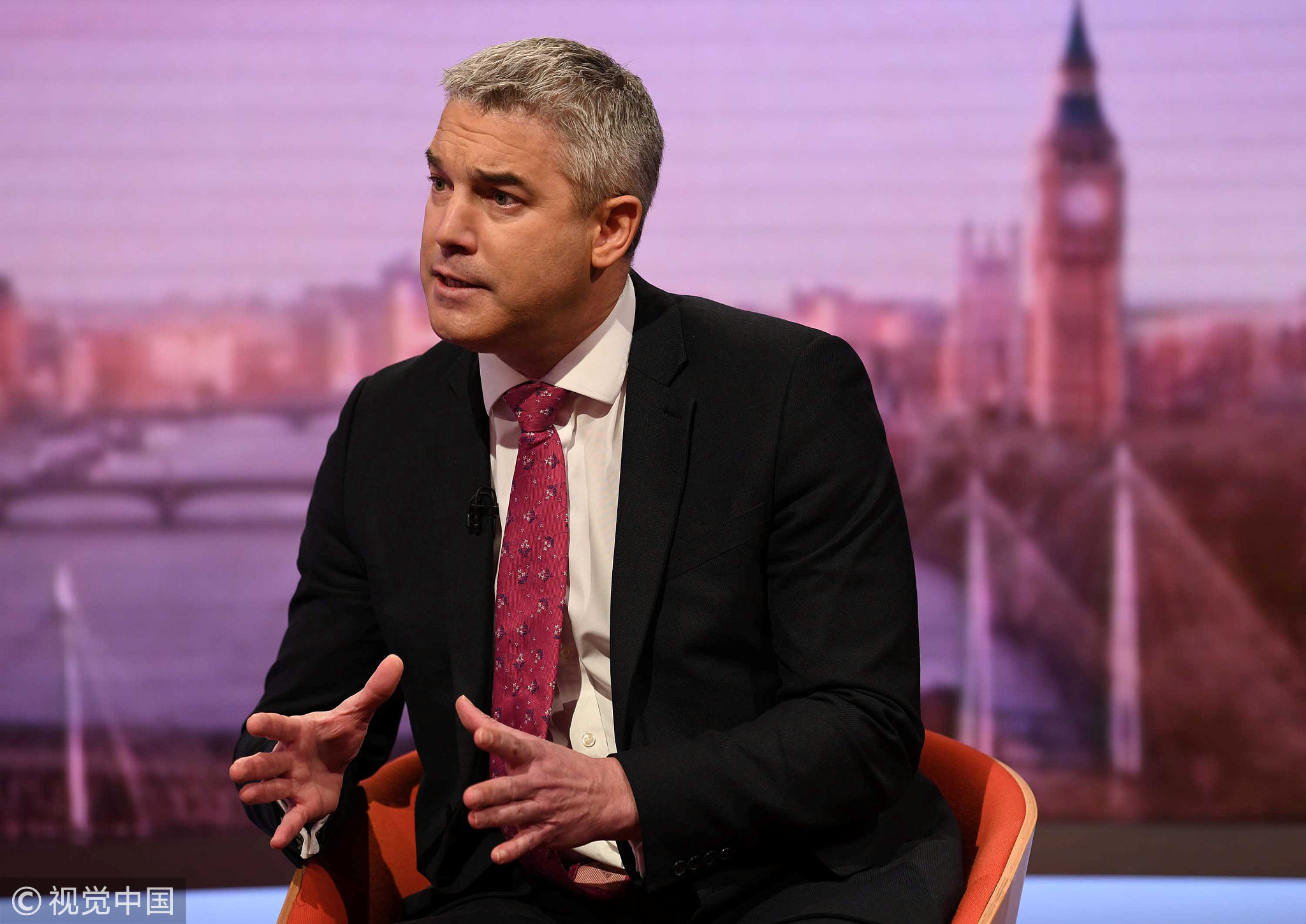
Britain's Brexit Secretary Stephen Barclay appears on the BBC's Andrew Marr Show, in London, England, January 13, 2019. /VCG Photo
Britain's Brexit Secretary Stephen Barclay appears on the BBC's Andrew Marr Show, in London, England, January 13, 2019. /VCG Photo
The opposition Labour Party, which favors remaining in a permanent customs union with the EU, has suggested it will seek a no-confidence vote in the government if MPs throw out the plan.
Opposition Labour Party leader Jeremy Corbyn said leaving the EU without a deal would be catastrophic and his party would do everything it could to prevent that outcome.
"My own view is I'd rather get a negotiated deal now if we can to stop the danger of a no deal exit from the EU on the 29th March, which would be catastrophic for industry, catastrophic for trade and the long-term effects of that would be huge," said Corbyn.
However, Corbyn's priority is to force a national election, and he said he would propose a vote of confidence in the government “soon” if May loses on Tuesday.
"If they fail to do so, a general election would be called."
The Observer newspaper reported on Sunday that its lawmakers have been told it could be tabled "within hours" of that on Tuesday, with the confidence vote to be held the following day.
If the government loses a no-confidence motion, there will be 14 days in which parties can seek to find an alternative working majority in parliament.
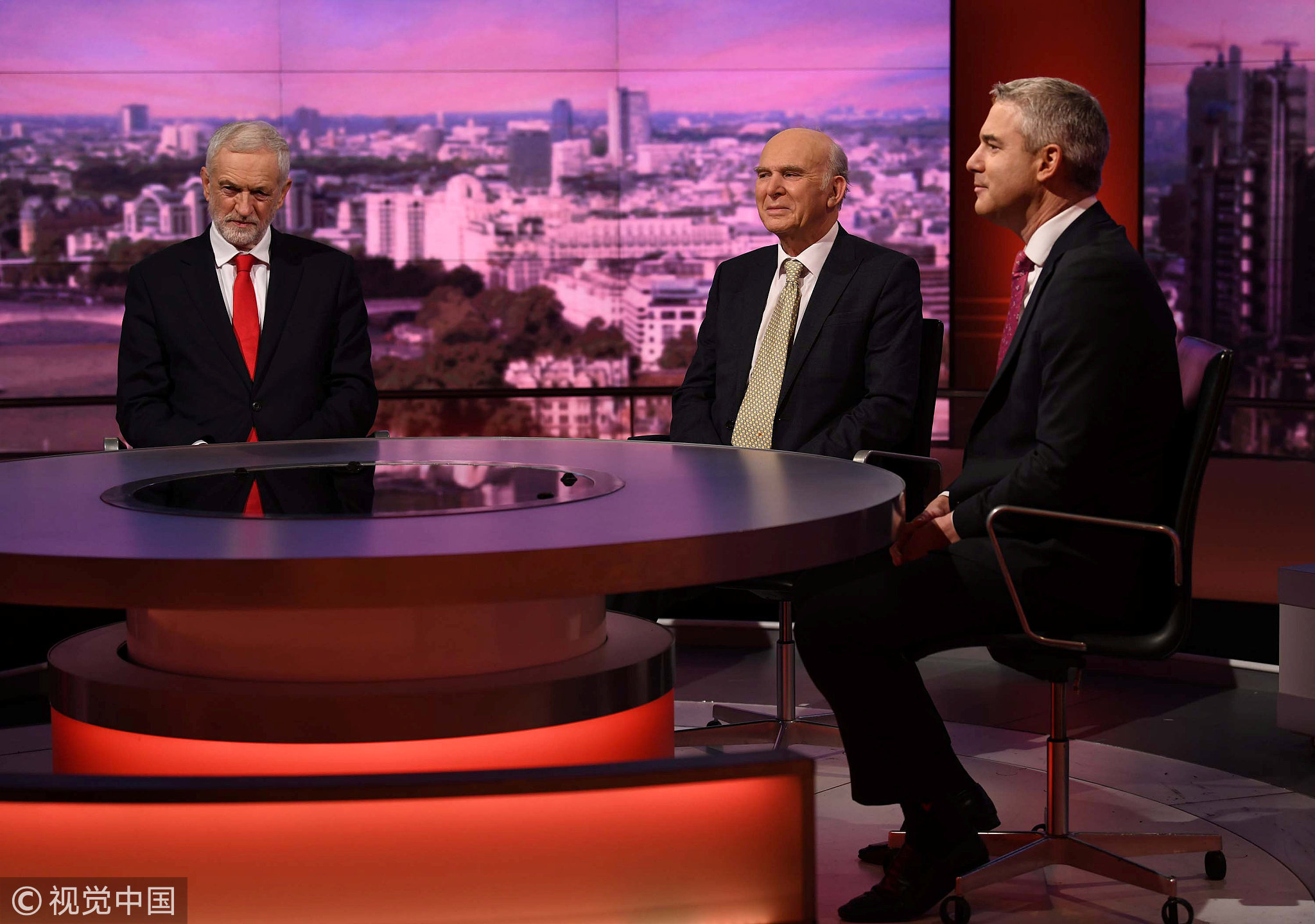
Britain's opposition Labour party leader Jeremy Corbyn (L), and Britain's Brexit Secretary Stephen Barclay (R) appear on the BBC's Andrew Marr Show, in London, England, January 13, 2019. /VCG Photo
Britain's opposition Labour party leader Jeremy Corbyn (L), and Britain's Brexit Secretary Stephen Barclay (R) appear on the BBC's Andrew Marr Show, in London, England, January 13, 2019. /VCG Photo
"We will table a motion of no-confidence in the government at a time of our choosing, but it's going to be soon, don't worry about it," Corbyn told the BBC on Sunday.
Corbyn conceded if the party won power, parliament would likely need to delay Brexit beyond March 29 so it could renegotiate the withdrawal agreement.
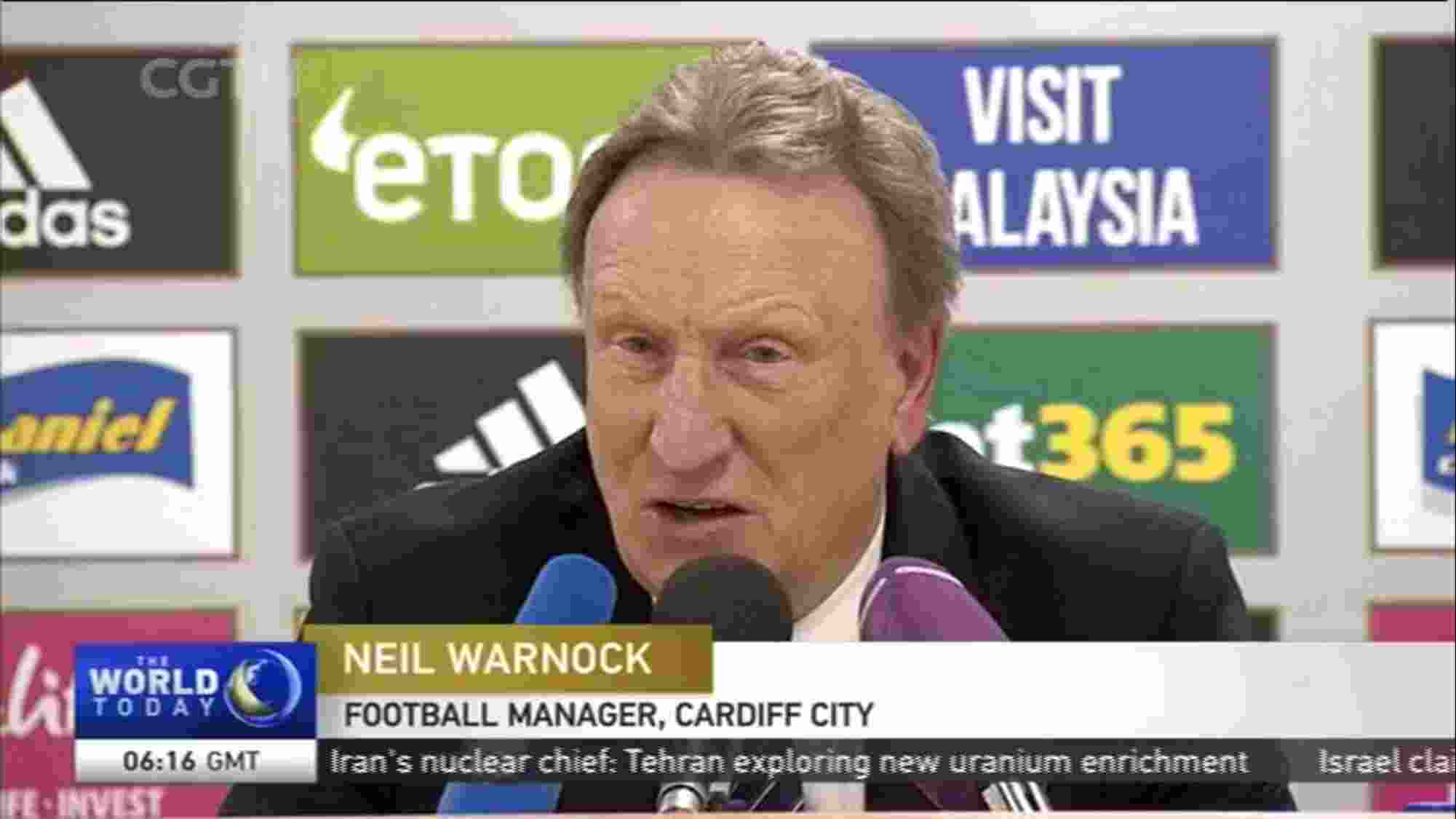
Neil Warnock, football manager, Cardiff City. /CGTN Photo
Neil Warnock, football manager, Cardiff City. /CGTN Photo
Brexit has extended well beyond the political arena, pouring into the soccer stadium as well. When asked how it may affect the team's business, Cardiff City manager Neil Warnock unleashed strong words on the government's handling of the issue.
"Why did we have a referendum in the first bloody place? I can't wait to get out of them if I am honest. I think we will be far better out of the bloody thing (the European Union), in every aspect. And to hell with the rest of the world."
Warnock is among the many voicing their opinions as the clock winds down ahead of tomorrow's vote. Many expect parliament to reject May's deal, which will most likely lead to even more discontent.
(CGTN's Timothy Ulrich and Wang Yushen also contributed to the story.)
Source(s): AFP
,Reuters







